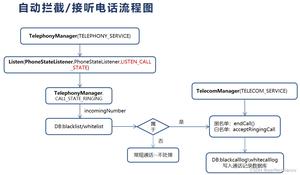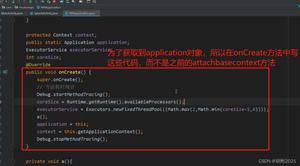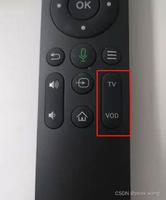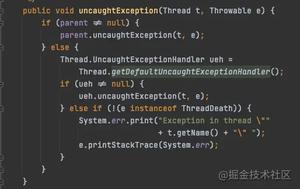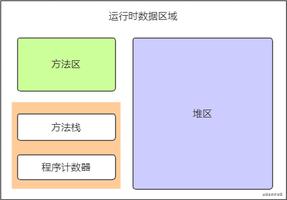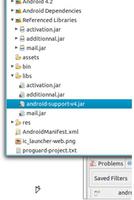Android判断用户2G/3G/4G移动数据网络
在做 Android App 的时候,为了给用户省流量,为了不激起用户的愤怒,为了更好的用户体验,是需要根据用户当前网络情况来做一些调整的,也可以在 App 的设置模块里,让用户自己选择,在 2G / 3G / 4G 网络条件下,是否允许请求一些流量比较大的数据。
通过 Android 提供的 TelephonyManager 和 ConnectivityManager 都可以获取到 NetworksInfo 对象,可以通过 getType() 获取类型,判断是 wifi 还是 mobile ,如果是 mobile ,可以通过 NetworksInfo 对象的 getSubType() 和 getSubTypeName() 可以获取到对于的网络类型和名字。
网络类型和名字定义在 TelephonyManager 类里。
/** Network type is unknown */
public static final int NETWORK_TYPE_UNKNOWN = 0;
/** Current network is GPRS */
public static final int NETWORK_TYPE_GPRS = 1;
/** Current network is EDGE */
public static final int NETWORK_TYPE_EDGE = 2;
/** Current network is UMTS */
public static final int NETWORK_TYPE_UMTS = 3;
/** Current network is CDMA: Either IS95A or IS95B*/
public static final int NETWORK_TYPE_CDMA = 4;
/** Current network is EVDO revision 0*/
public static final int NETWORK_TYPE_EVDO_0 = 5;
/** Current network is EVDO revision A*/
public static final int NETWORK_TYPE_EVDO_A = 6;
/** Current network is 1xRTT*/
public static final int NETWORK_TYPE_1xRTT = 7;
/** Current network is HSDPA */
public static final int NETWORK_TYPE_HSDPA = 8;
/** Current network is HSUPA */
public static final int NETWORK_TYPE_HSUPA = 9;
/** Current network is HSPA */
public static final int NETWORK_TYPE_HSPA = 10;
/** Current network is iDen */
public static final int NETWORK_TYPE_IDEN = 11;
/** Current network is EVDO revision B*/
public static final int NETWORK_TYPE_EVDO_B = 12;
/** Current network is LTE */
public static final int NETWORK_TYPE_LTE = 13;
/** Current network is eHRPD */
public static final int NETWORK_TYPE_EHRPD = 14;
/** Current network is HSPA+ */
public static final int NETWORK_TYPE_HSPAP = 15;
看到这个代码和注释,相信没有这方面知识的人很难看懂,都啥玩意?这注释跟没注释有啥区别?!就是让人看着更加闹心而已。所以说,注释对阅读代码的人很重 要。当然这些东西可能太专业了,写这些代码的人估计是想写也不知道该怎么了,得写多大一坨啊?!我在最后会贴上一些我整理的资料,可以供大家参考一下,不 是很详细,也不专业,就是大概有个印象。
TelephonyManager 还提供了 getNetworkTypeName(int type) 的方法,这个方法可以返回一个字符串,但是信息量不大。
那怎么判断是 2G , 3G 还是 4G 网络呢?TelephonyManager 还提供了另外一个方法,getNetworkClass(int networkType) ,但这个方法被隐藏掉了,我把代码贴一下。
public static int getNetworkClass(int networkType) {
switch (networkType) {
case NETWORK_TYPE_GPRS:
case NETWORK_TYPE_EDGE:
case NETWORK_TYPE_CDMA:
case NETWORK_TYPE_1xRTT:
case NETWORK_TYPE_IDEN:
return NETWORK_CLASS_2_G;
case NETWORK_TYPE_UMTS:
case NETWORK_TYPE_EVDO_0:
case NETWORK_TYPE_EVDO_A:
case NETWORK_TYPE_HSDPA:
case NETWORK_TYPE_HSUPA:
case NETWORK_TYPE_HSPA:
case NETWORK_TYPE_EVDO_B:
case NETWORK_TYPE_EHRPD:
case NETWORK_TYPE_HSPAP:
return NETWORK_CLASS_3_G;
case NETWORK_TYPE_LTE:
return NETWORK_CLASS_4_G;
default:
return NETWORK_CLASS_UNKNOWN;
}
}
然后下面是这几个常量的值。
/** Unknown network class. {@hide} */
public static final int NETWORK_CLASS_UNKNOWN = 0;
/** Class of broadly defined "2G" networks. {@hide} */
public static final int NETWORK_CLASS_2_G = 1;
/** Class of broadly defined "3G" networks. {@hide} */
public static final int NETWORK_CLASS_3_G = 2;
/** Class of broadly defined "4G" networks. {@hide} */
public static final int NETWORK_CLASS_4_G = 3;
不知道为啥要把这些东西给隐藏起来,不靠谱?还是其他的更好的方式?!不知道,先这样吧,现在通过上面的手段,是可以知道用户用的是什么网络,当 然也可以区分出来用户使用的是 2G , 3G 还是 4G 了。当然,你获取到这些数据后,你也可以推算出用户用的是哪家公司的网络,移动的,联通的,还是电信的,当然,只在中国。而且虚拟运营商开始真正上市后, 这个就区分不出来是京东的,还是国美,苏宁的了,但是你可以知道你的手机号用的是联通的网还是移动的网。
最后贴上我收集整理的一些资料,可以参考一下。
- GPRS 2G(2.5) General Packet Radia Service 114kbps
- EDGE 2G(2.75G) Enhanced Data Rate for GSM Evolution 384kbps
- UMTS 3G WCDMA 联通3G Universal Mobile Telecommunication System 完整的3G移动通信技术标准
- CDMA 2G 电信 Code Division Multiple Access 码分多址
- EVDO_0 3G (EVDO 全程 CDMA2000 1xEV-DO) Evolution - Data Only (Data Optimized) 153.6kps - 2.4mbps 属于3G
- EVDO_A 3G 1.8mbps - 3.1mbps 属于3G过渡,3.5G
- 1xRTT 2G CDMA2000 1xRTT (RTT - 无线电传输技术) 144kbps 2G的过渡,
- HSDPA 3.5G 高速下行分组接入 3.5G WCDMA High Speed Downlink Packet Access 14.4mbps
- HSUPA 3.5G High Speed Uplink Packet Access 高速上行链路分组接入 1.4 - 5.8 mbps
- HSPA 3G (分HSDPA,HSUPA) High Speed Packet Access
- IDEN 2G Integrated Dispatch Enhanced Networks 集成数字增强型网络 (属于2G,来自维基百科)
- EVDO_B 3G EV-DO Rev.B 14.7Mbps 下行 3.5G
- LTE 4G Long Term Evolution FDD-LTE 和 TDD-LTE , 3G过渡,升级版 LTE Advanced 才是4G
- EHRPD 3G CDMA2000向LTE 4G的中间产物 Evolved High Rate Packet Data HRPD的升级
- HSPAP 3G HSPAP 比 HSDPA 快些
实例:
import java.io.BufferedReader;
import java.io.InputStreamReader;
import java.text.DecimalFormat;
import java.util.List;
import android.content.Context;
import android.net.ConnectivityManager;
import android.net.NetworkInfo;
import android.net.wifi.WifiInfo;
import android.net.wifi.WifiManager;
import android.telephony.NeighboringCellInfo;
import android.telephony.TelephonyManager;
import android.telephony.cdma.CdmaCellLocation;
import android.telephony.gsm.GsmCellLocation;
import android.util.Log;
public class NetWorkUtil {
public static boolean isWifiAvailable() {
ConnectivityManager connectivityManager = (ConnectivityManager) ConfigManager
.getContext().getSystemService(Context.CONNECTIVITY_SERVICE);
NetworkInfo networkInfo = connectivityManager.getActiveNetworkInfo();
return (networkInfo != null && networkInfo.isConnected() && networkInfo
.getType() == ConnectivityManager.TYPE_WIFI);
}
/**
* 获取MAC地址
*
* @param context
* @return
*/
public static String getMacAddress(Context context) {
if (context == null) {
return "";
}
String localMac = null;
if (isWifiAvailable()) {
localMac = getWifiMacAddress(context);
}
if (localMac != null && localMac.length() > 0) {
localMac = localMac.replace(":", "-").toLowerCase();
return localMac;
}
localMac = getMacFromCallCmd();
if (localMac != null) {
localMac = localMac.replace(":", "-").toLowerCase();
}
return localMac;
}
private static String getWifiMacAddress(Context context) {
String localMac = null;
try {
WifiManager wifi = (WifiManager) context
.getSystemService(Context.WIFI_SERVICE);
WifiInfo info = wifi.getConnectionInfo();
if (wifi.isWifiEnabled()) {
localMac = info.getMacAddress();
if (localMac != null) {
localMac = localMac.replace(":", "-").toLowerCase();
return localMac;
}
}
} catch (Exception e) {
e.printStackTrace();
}
return null;
}
/**
* 通过callCmd("busybox ifconfig","HWaddr")获取mac地址
*
* @attention 需要设备装有busybox工具
* @return Mac Address
*/
private static String getMacFromCallCmd() {
String result = "";
result = callCmd("busybox ifconfig", "HWaddr");
if (result == null || result.length() <= 0) {
return null;
}
DebugLog.v("tag", "cmd result : " + result);
// 对该行数据进行解析
// 例如:eth0 Link encap:Ethernet HWaddr 00:16:E8:3E:DF:67
if (result.length() > 0 && result.contains("HWaddr") == true) {
String Mac = result.substring(result.indexOf("HWaddr") + 6,
result.length() - 1);
if (Mac.length() > 1) {
result = Mac.replaceAll(" ", "");
}
}
return result;
}
public static String callCmd(String cmd, String filter) {
String result = "";
String line = "";
try {
Process proc = Runtime.getRuntime().exec(cmd);
InputStreamReader is = new InputStreamReader(proc.getInputStream());
BufferedReader br = new BufferedReader(is);
// 执行命令cmd,只取结果中含有filter的这一行
while ((line = br.readLine()) != null
&& line.contains(filter) == false) {
}
result = line;
} catch (Exception e) {
e.printStackTrace();
}
return result;
}
/**
* 网络是否可用
*
* @param context
* @return
*/
public static boolean IsNetWorkEnable(Context context) {
try {
ConnectivityManager connectivity = (ConnectivityManager) context
.getSystemService(Context.CONNECTIVITY_SERVICE);
if (connectivity == null) {
ToastUtil.showMessage(context, "无法连接网络");
return false;
}
NetworkInfo info = connectivity.getActiveNetworkInfo();
if (info != null && info.isConnected()) {
// 判断当前网络是否已经连接
if (info.getState() == NetworkInfo.State.CONNECTED) {
return true;
}
}
} catch (Exception e) {
e.printStackTrace();
}
ToastUtil.showMessage(context, "无法连接网络");
return false;
}
private static final int NETWORK_TYPE_UNAVAILABLE = -1;
// private static final int NETWORK_TYPE_MOBILE = -100;
private static final int NETWORK_TYPE_WIFI = -101;
private static final int NETWORK_CLASS_WIFI = -101;
private static final int NETWORK_CLASS_UNAVAILABLE = -1;
/** Unknown network class. */
private static final int NETWORK_CLASS_UNKNOWN = 0;
/** Class of broadly defined "2G" networks. */
private static final int NETWORK_CLASS_2_G = 1;
/** Class of broadly defined "3G" networks. */
private static final int NETWORK_CLASS_3_G = 2;
/** Class of broadly defined "4G" networks. */
private static final int NETWORK_CLASS_4_G = 3;
private static DecimalFormat df = new DecimalFormat("#.##");
// 适配低版本手机
/** Network type is unknown */
public static final int NETWORK_TYPE_UNKNOWN = 0;
/** Current network is GPRS */
public static final int NETWORK_TYPE_GPRS = 1;
/** Current network is EDGE */
public static final int NETWORK_TYPE_EDGE = 2;
/** Current network is UMTS */
public static final int NETWORK_TYPE_UMTS = 3;
/** Current network is CDMA: Either IS95A or IS95B */
public static final int NETWORK_TYPE_CDMA = 4;
/** Current network is EVDO revision 0 */
public static final int NETWORK_TYPE_EVDO_0 = 5;
/** Current network is EVDO revision A */
public static final int NETWORK_TYPE_EVDO_A = 6;
/** Current network is 1xRTT */
public static final int NETWORK_TYPE_1xRTT = 7;
/** Current network is HSDPA */
public static final int NETWORK_TYPE_HSDPA = 8;
/** Current network is HSUPA */
public static final int NETWORK_TYPE_HSUPA = 9;
/** Current network is HSPA */
public static final int NETWORK_TYPE_HSPA = 10;
/** Current network is iDen */
public static final int NETWORK_TYPE_IDEN = 11;
/** Current network is EVDO revision B */
public static final int NETWORK_TYPE_EVDO_B = 12;
/** Current network is LTE */
public static final int NETWORK_TYPE_LTE = 13;
/** Current network is eHRPD */
public static final int NETWORK_TYPE_EHRPD = 14;
/** Current network is HSPA+ */
public static final int NETWORK_TYPE_HSPAP = 15;
/**
* 格式化大小
*
* @param size
* @return
*/
public static String formatSize(long size) {
String unit = "B";
float len = size;
if (len > 900) {
len /= 1024f;
unit = "KB";
}
if (len > 900) {
len /= 1024f;
unit = "MB";
}
if (len > 900) {
len /= 1024f;
unit = "GB";
}
if (len > 900) {
len /= 1024f;
unit = "TB";
}
return df.format(len) + unit;
}
public static String formatSizeBySecond(long size) {
String unit = "B";
float len = size;
if (len > 900) {
len /= 1024f;
unit = "KB";
}
if (len > 900) {
len /= 1024f;
unit = "MB";
}
if (len > 900) {
len /= 1024f;
unit = "GB";
}
if (len > 900) {
len /= 1024f;
unit = "TB";
}
return df.format(len) + unit + "/s";
}
public static String format(long size) {
String unit = "B";
float len = size;
if (len > 1000) {
len /= 1024f;
unit = "KB";
if (len > 1000) {
len /= 1024f;
unit = "MB";
if (len > 1000) {
len /= 1024f;
unit = "GB";
}
}
}
return df.format(len) + "\n" + unit + "/s";
}
/**
* 获取运营商
*
* @return
*/
public static String getProvider() {
String provider = "未知";
try {
TelephonyManager telephonyManager = (TelephonyManager) ConfigManager
.getContext().getSystemService(Context.TELEPHONY_SERVICE);
String IMSI = telephonyManager.getSubscriberId();
Log.v("tag", "getProvider.IMSI:" + IMSI);
if (IMSI == null) {
if (TelephonyManager.SIM_STATE_READY == telephonyManager
.getSimState()) {
String operator = telephonyManager.getSimOperator();
Log.v("tag", "getProvider.operator:" + operator);
if (operator != null) {
if (operator.equals("46000")
|| operator.equals("46002")
|| operator.equals("46007")) {
provider = "中国移动";
} else if (operator.equals("46001")) {
provider = "中国联通";
} else if (operator.equals("46003")) {
provider = "中国电信";
}
}
}
} else {
if (IMSI.startsWith("46000") || IMSI.startsWith("46002")
|| IMSI.startsWith("46007")) {
provider = "中国移动";
} else if (IMSI.startsWith("46001")) {
provider = "中国联通";
} else if (IMSI.startsWith("46003")) {
provider = "中国电信";
}
}
} catch (Exception e) {
e.printStackTrace();
}
return provider;
}
/**
* 获取网络类型
*
* @return
*/
public static String getCurrentNetworkType() {
int networkClass = getNetworkClass();
String type = "未知";
switch (networkClass) {
case NETWORK_CLASS_UNAVAILABLE:
type = "无";
break;
case NETWORK_CLASS_WIFI:
type = "Wi-Fi";
break;
case NETWORK_CLASS_2_G:
type = "2G";
break;
case NETWORK_CLASS_3_G:
type = "3G";
break;
case NETWORK_CLASS_4_G:
type = "4G";
break;
case NETWORK_CLASS_UNKNOWN:
type = "未知";
break;
}
return type;
}
private static int getNetworkClassByType(int networkType) {
switch (networkType) {
case NETWORK_TYPE_UNAVAILABLE:
return NETWORK_CLASS_UNAVAILABLE;
case NETWORK_TYPE_WIFI:
return NETWORK_CLASS_WIFI;
case NETWORK_TYPE_GPRS:
case NETWORK_TYPE_EDGE:
case NETWORK_TYPE_CDMA:
case NETWORK_TYPE_1xRTT:
case NETWORK_TYPE_IDEN:
return NETWORK_CLASS_2_G;
case NETWORK_TYPE_UMTS:
case NETWORK_TYPE_EVDO_0:
case NETWORK_TYPE_EVDO_A:
case NETWORK_TYPE_HSDPA:
case NETWORK_TYPE_HSUPA:
case NETWORK_TYPE_HSPA:
case NETWORK_TYPE_EVDO_B:
case NETWORK_TYPE_EHRPD:
case NETWORK_TYPE_HSPAP:
return NETWORK_CLASS_3_G;
case NETWORK_TYPE_LTE:
return NETWORK_CLASS_4_G;
default:
return NETWORK_CLASS_UNKNOWN;
}
}
private static int getNetworkClass() {
int networkType = NETWORK_TYPE_UNKNOWN;
try {
final NetworkInfo network = ((ConnectivityManager) ConfigManager
.getContext()
.getSystemService(Context.CONNECTIVITY_SERVICE))
.getActiveNetworkInfo();
if (network != null && network.isAvailable()
&& network.isConnected()) {
int type = network.getType();
if (type == ConnectivityManager.TYPE_WIFI) {
networkType = NETWORK_TYPE_WIFI;
} else if (type == ConnectivityManager.TYPE_MOBILE) {
TelephonyManager telephonyManager = (TelephonyManager) ConfigManager
.getContext().getSystemService(
Context.TELEPHONY_SERVICE);
networkType = telephonyManager.getNetworkType();
}
} else {
networkType = NETWORK_TYPE_UNAVAILABLE;
}
} catch (Exception ex) {
ex.printStackTrace();
}
return getNetworkClassByType(networkType);
}
public static String getWifiRssi() {
int asu = 85;
try {
final NetworkInfo network = ((ConnectivityManager) ConfigManager
.getContext()
.getSystemService(Context.CONNECTIVITY_SERVICE))
.getActiveNetworkInfo();
if (network != null && network.isAvailable()
&& network.isConnected()) {
int type = network.getType();
if (type == ConnectivityManager.TYPE_WIFI) {
WifiManager wifiManager = (WifiManager) ConfigManager
.getContext()
.getSystemService(Context.WIFI_SERVICE);
WifiInfo wifiInfo = wifiManager.getConnectionInfo();
if (wifiInfo != null) {
asu = wifiInfo.getRssi();
}
}
}
} catch (Exception e) {
e.printStackTrace();
}
return asu + "dBm";
}
public static String getWifiSsid() {
String ssid = "";
try {
final NetworkInfo network = ((ConnectivityManager) ConfigManager
.getContext()
.getSystemService(Context.CONNECTIVITY_SERVICE))
.getActiveNetworkInfo();
if (network != null && network.isAvailable()
&& network.isConnected()) {
int type = network.getType();
if (type == ConnectivityManager.TYPE_WIFI) {
WifiManager wifiManager = (WifiManager) ConfigManager
.getContext()
.getSystemService(Context.WIFI_SERVICE);
WifiInfo wifiInfo = wifiManager.getConnectionInfo();
if (wifiInfo != null) {
ssid = wifiInfo.getSSID();
if (ssid == null) {
ssid = "";
}
ssid = ssid.replaceAll("\"", "");
}
}
}
} catch (Exception e) {
e.printStackTrace();
}
return ssid;
}
/**
* 检查sim卡状态
*
* @param ctx
* @return
*/
public static boolean checkSimState() {
TelephonyManager tm = (TelephonyManager) ConfigManager.getContext()
.getSystemService(Context.TELEPHONY_SERVICE);
if (tm.getSimState() == TelephonyManager.SIM_STATE_ABSENT
|| tm.getSimState() == TelephonyManager.SIM_STATE_UNKNOWN) {
return false;
}
return true;
}
/**
* 获取imei
*/
public static String getImei() {
TelephonyManager mTelephonyMgr = (TelephonyManager) ConfigManager
.getContext().getSystemService(Context.TELEPHONY_SERVICE);
String imei = mTelephonyMgr.getDeviceId();
if (imei == null) {
imei = "000000000000000";
}
return imei;
}
public static String getPhoneImsi() {
TelephonyManager mTelephonyMgr = (TelephonyManager) ConfigManager
.getContext().getSystemService(Context.TELEPHONY_SERVICE);
return mTelephonyMgr.getSubscriberId();
}
public static CellInfo getNetInfo() {
CellInfo info = new CellInfo();
try {
TelephonyManager mTelephonyManager = (TelephonyManager) ConfigManager
.getContext().getSystemService(Context.TELEPHONY_SERVICE);
String operator = mTelephonyManager.getNetworkOperator();
if (operator != null) {
/** 通过operator获取 MCC 和MNC */
if (operator.length() > 3) {
String mcc = operator.substring(0, 3);
String mnc = operator.substring(3);
info.setMcc(mcc);
info.setMnc(mnc);
}
}
int lac = 0;
int cellId = 0;
int phoneType = mTelephonyManager.getPhoneType();
if (phoneType == TelephonyManager.PHONE_TYPE_GSM) {
GsmCellLocation location = (GsmCellLocation) mTelephonyManager
.getCellLocation();
/** 通过GsmCellLocation获取中国移动和联通 LAC 和cellID */
lac = location.getLac();
cellId = location.getCid();
} else if (phoneType == TelephonyManager.PHONE_TYPE_CDMA) {
CdmaCellLocation location = (CdmaCellLocation) mTelephonyManager
.getCellLocation();
lac = location.getNetworkId();
cellId = location.getBaseStationId();
cellId /= 16;
}
if (lac == 0 || cellId == 0) {
List<NeighboringCellInfo> infos = mTelephonyManager
.getNeighboringCellInfo();
int lc = 0;
int ci = 0;
int rssi = 0;
for (NeighboringCellInfo cell : infos) {
// 根据邻区总数进行循环
if (lc == 0 || ci == 0) {
lc = cell.getLac();
ci = cell.getCid();
rssi = cell.getRssi();
}
// sb.append(" LAC : " + info.getLac());
// // 取出当前邻区的LAC
// sb.append(" CID : " + info.getCid());
// // 取出当前邻区的CID
// sb.append(" BSSS : " + (-113 + 2 * info.getRssi()) +
// "\n"); // 获取邻区基站信号强度
}
rssi = -113 + 2 * rssi;
}
} catch (Exception e) {
e.printStackTrace();
}
return info;
}
}
希望本文所述对大家学习Android软件编程有所帮助。
以上是 Android判断用户2G/3G/4G移动数据网络 的全部内容, 来源链接: utcz.com/z/325645.html


